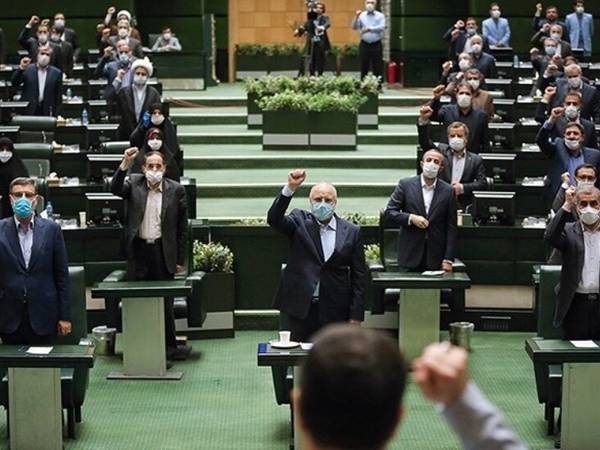A prominent Iranian politician has called for the establishment of a tribunal to bring to trial the statesmen who have jeopardized Iran's national interests.
The former head of the Iranian parliament's National Security and Foreign Relations Committee Heshmatollah Falahatpisheh has told the press in Iran that three groups of Iranian statesmen should be put on trial on charges of weakening the country by their injudicious actions and policies.
He identified the three groups as "Those who have sacrificed national interests for factional political gains, those who have benefitted from international sanctions and plundered the country's financial resources, and those who prevented the forming of a rational foreign policy."
These characteristics point to ultraconservatives who have opposed cordial relations with the West and the JCPOA nuclear agreement between Iran and the United States. The same faction of hardliners also opposed accession to financial regulations set by the international Financial Action Task Force (FATF) that could have facilitated international trade and banking, as well as compromise with the European and American partners to the JCPOA that could have paved the way for ending the sanctions that have paralyzed Iran's economy.
Meanwhile, Falahatpisheh charged that the same ultraconservative groups, who previously claimed that furthering the negotiations to revive the 2015 nuclear deal was treason against the country's national interests and prevented the passing of the FATF bills, are currently pretending to be supporting the JCPOA and the ratification of financial regulations.
He was alluding to President Ebrahim Raisi and his ultraconservative economic teas and populist supporters in the government who have asked Supreme Leader Ali Khamenei to revive the debates about the FATF bills at Iran's Expediency Council, where the bills have been shelved since 2017 because of faction fighting at the parliament and government.
Falahatpisheh said that these groups, which he did not specifically identify, have squandered billions of dollars of the country's financial resources through their obstructive measures.
In another development, the conservative Jomhouri Eslami daily, a critic of the government policies wrote on Thursday that while it's a positive step that some of the country's officials have come to realize that their policies concerning the JCPOA and FATF were mistaken, these politicians should be held accountable for their decisions and compelled to bear the consequences of their detrimental actions.
The daily stated: "The people certainly welcome this change of approach on the part of the politicians who used to oppose the nuclear deal and healthy international trade and banking. But those politicians should be held accountable for the losses they imposed on the country's economy."
Similar to Falahatpisheh, Jomhouri Eslami also pointed out that some of the current advocates of the JCPOA and FATF are the same individuals who used to dismiss the nuclear agreement and FATF. "They asserted that they could address the country's economic problems without becoming party to the FATF conventions. They also contended that joining the convention would result in divulging Iran's economic secrets to foreigners and compromising the country's sovereignty."
The daily noted that during parliamentary discussions about the FATF, some individuals did not have a clear understanding of the acronym's meaning, and others even misspelled it.
Jomhouri Eslami also warned that although some hardliners now say they have changed their minds about the two topics, there is still a powerful opposition. The daily further warned that the continuation of this dispute might create bigger problems for Iran.
In yet another development, former President Hassan Rouhani told the congress of his political party, the Moderation and Development Party on Wednesday, that "Iran's way out of its current problems is moderation." Referring to the monopoly of power by hardliners, he warned that when a minority rules in the country, the people will have to voice their demands in the streets."
